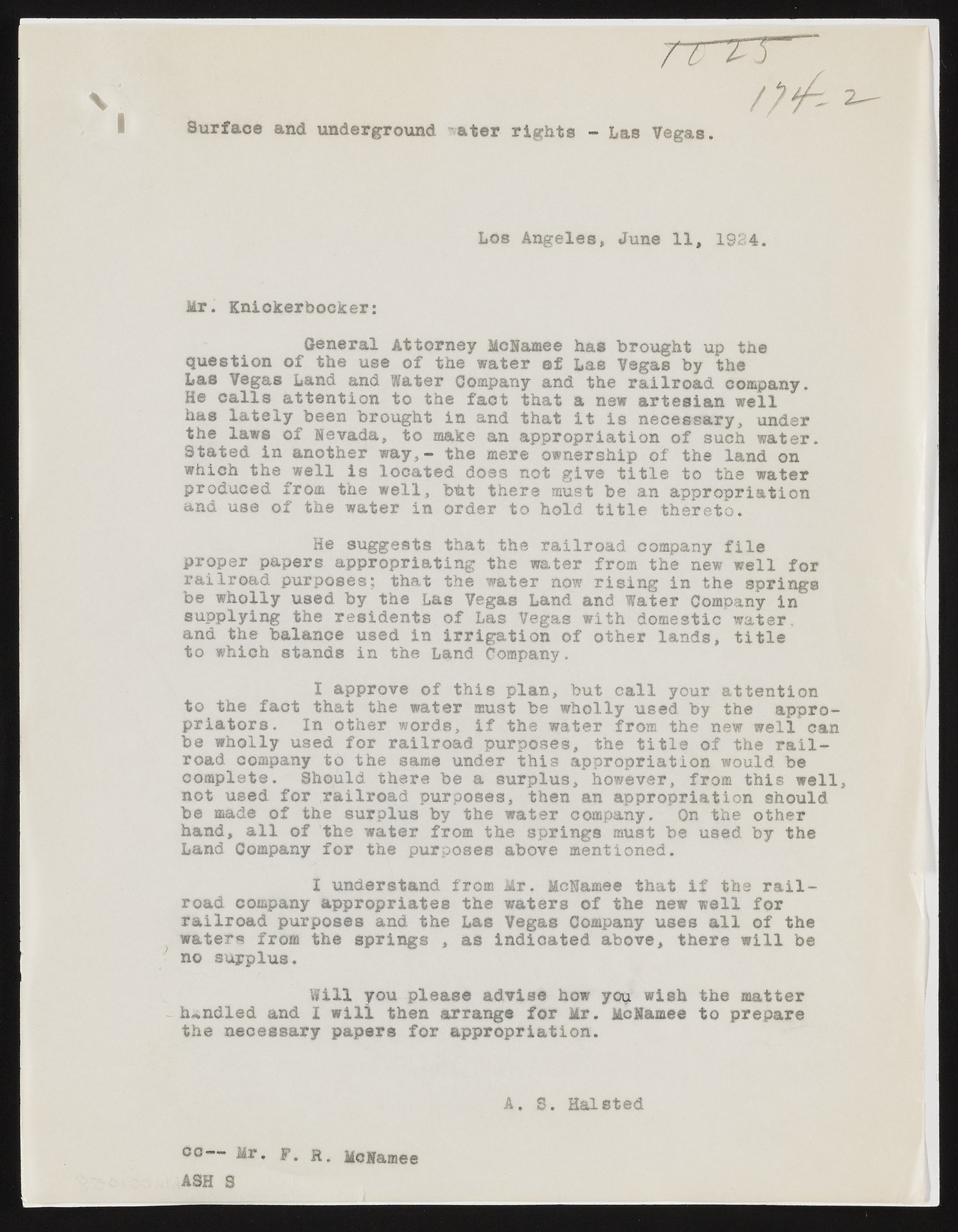Copyright & Fair-use Agreement
UNLV Special Collections provides copies of materials to facilitate private study, scholarship, or research. Material not in the public domain may be used according to fair use of copyrighted materials as defined by copyright law. Please cite us.
Please note that UNLV may not own the copyright to these materials and cannot provide permission to publish or distribute materials when UNLV is not the copyright holder. The user is solely responsible for determining the copyright status of materials and obtaining permission to use material from the copyright holder and for determining whether any permissions relating to any other rights are necessary for the intended use, and for obtaining all required permissions beyond that allowed by fair use.
Read more about our reproduction and use policy.
I agree.Information
Digital ID
Permalink
Details
Member of
More Info
Rights
Digital Provenance
Publisher
Transcription
Surface and underground ater rights - Las Vegas. 1S1 Los Angeles, June 11, 19: 4. Mr. Knickerbocker: General Attorney McNamee has brought up the question of the use of the water of Lae Vegas by the Las Vegas Land and Water Company and the railro ad company. He c a lls attention to the fact that a new artesian well has la te ly been brought in and that i t is necessary, under the laws of Nevada, to make an appropriation of such water. Stated in another way,- the mere ownership of the land on which the well is located doss not give t it le to the water produced from the w ell, bht there must be an appropriation and use of the water in order to hold t it le thereto. He suggests that the railroad company f i le proper papers appropriating the water from the new well for railro ad purposes; that the water now risin g in the springs be wholly used by the Las Vegas Land and Water Company in supplying the residents of Las Vegas with domestic water, and the balance used in irrig a tio n of other lands, t it le to which stands in the Land Company. I approve of this plan, but c a ll your attention to the fact that the water must be wholly used by the approp r i a t e s . In other words, i f the water from the new well can be wholly used for railroad purposes, the t it le of the r a i l road company to the same under this appropriation would, be complete. Should there be a surplus, however, from this w ell, not used for railroad purposes, then an appropriation should be made of the surplus by the water company. On the other hand, a l l of the water from the springs must be used by the Land Company for the purposes above mentioned. I understand from Mr. McNamee that i f the r a i l road company appropriates the waters of the new w ell for ra ilro ad purposes and the Las Vegas Company uses a l l of the waters from the springs , as indicated above, there w ill be no surplus. W ill you please advise how you wish the matter handled and I w ill then arrange for Mr. McNamee to prepare the necessary papers for appropriation. A. S. H&lsted cc— Mr. f . H. McNamee ASH S

